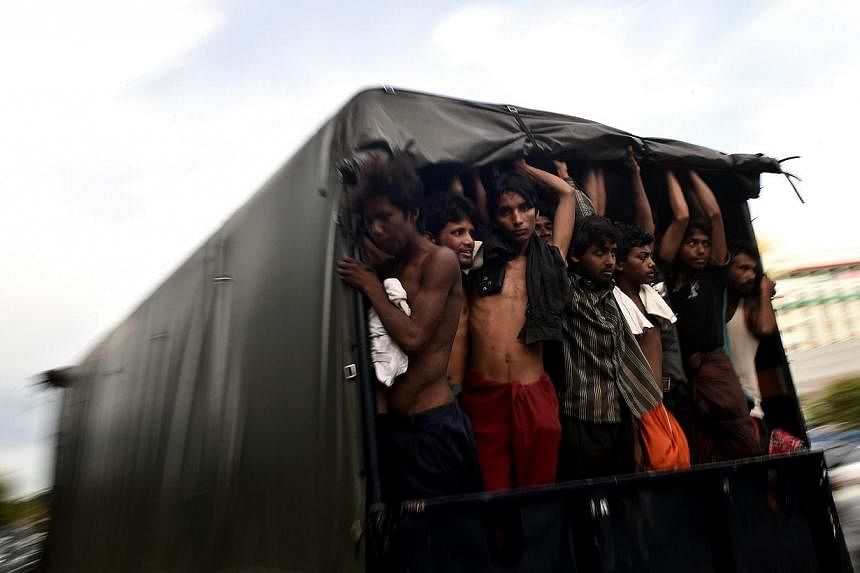AT A small community school for Rohingya refugees in the outskirts of Kuala Lumpur, the 94 children are taught not just by Malaysian teachers, but also one of their own.
Ms Ferozah Abdul Rashid, 25, came to Malaysia just four years ago to join her siblings and father, trading in her life as a stateless minority in Myanmar for that of a refugee in Kuala Lumpur. And she already speaks enough Malay and English to teach the local syllabus.
"I have been interviewed to see if I can further my studies in America. I want to return to Myanmar, it is my home, but how can I when it doesn't accept us," she told The Straits Times in Malay.
More than 140,000 people from Myanmar who fled their homeland for Malaysia - a third of them stateless Rohingya escaping deadly civil strife, like Ms Ferozah - work and study informally in the hope of a better future.
The United Nations High Commissioner for Refugees said 141,570 of the more than 152,000 documented refugees in Malaysia are from Myanmar, with 45,170 of them Rohingya. Other Myanmar ethnic minorities, such as the Chin, have also fled the country as civil war raged for decades between these groups and the central government.
The UN agency also estimates that another 30,000 refugees in Malaysia are undocumented, while the immigration department said more than half of the illegal immigrants under detention, or 6,936, are from Myanmar, with 4,531 being Rohingya.
While the Rohingya seek to settle in one of the region's richest economies, whose Muslim majority tend to be sympathetic to others of the same faith, the Malaysian government is not party to the 1951 UN convention on refugees and there are no provisions for these asylum seekers in terms of housing or jobs.
Instead, they mostly take up odd jobs, working as dishwashers, builders and plantation workers, often earning under RM1,000 (S$370) a month. Some depend on the generosity of locals, who offer them free or subsidised lodging and education.
Ms Ferozah teaches at a school run by the Malaysian Relief Agency (MRA). Last weekend, the school held a small fund-raising festival where children like Rahmat Bi Ramzah Ali, born 15 years ago in Malaysia, enjoyed ice cream and new clothes.
"My best language is Malay. I feel part Rohingya and part Malaysian but I don't have any wish to go to Myanmar as Malaysia is my home," said the girl, who is in Primary 5.
She and her seven siblings live with their parents, who are door-to-door book salesmen. Like many other Rohingya families, they live in peace with Malaysian neighbours.
"Even those born in Malaysia take a long time before they can go from refugee to permanent resident, never mind citizenship," said MRA president Abdul Razak Kechik.
But he added that the negative perception of Myanmar people held by some Malaysians - which has likely fuelled the government's refusal to take in more boat people after the first 1,100 landed a week ago - is at least partially self-inflicted.
"Some are involved in theft, burglary and even rape and murder, even though locals go a long way to help them. Some Rohingya sabotage their own people," he said.
At least 20 Myanmar nationals were killed in Penang late last year and the police believe the murderers were the victims' own countrymen.
The unwillingness of Thailand, Indonesia and Malaysia to accept an estimated 8,000 people still adrift in the Andaman Sea has left Ms Ferozah saddened. However, she puts the blame largely on the government of Myanmar President Thein Sein. "If the President accepts the Rohingya, then none of this would have happened," she said.

